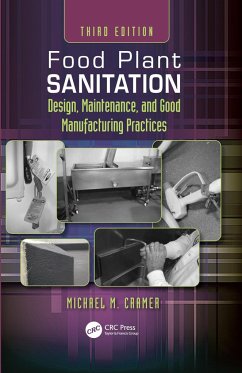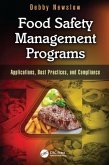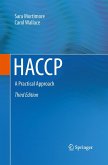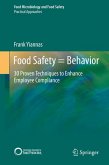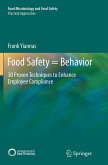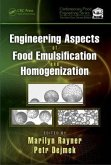Food safety and quality are primary concerns in the food manufacturing industry. Written by an author with more than 40 years' experience in the food industry, Food Plant Sanitation: Design, Maintenance, and Good Manufacturing Practices, Third Edition provides completely updated practical advice on all aspects of food plant sanitation and sanitation-related food safety issues. It offers readers the tools to establish a food safety system to help control microbiological, physical, and chemical hazards. Understanding that sanitation is integral to food safety is the foundation for an effective food safety system. Features of this new edition include new photographs, tables, and up-to-date material that better reflect current guidance on food plant sanitation, including additional information on the implementation of FSMA.
The chapters address testing for and control of microorganisms in food manufacturing, including recent challenges in the industry due to pathogens such as Listeria monocytogenes. They also offer discussions on biofilms, regulatory requirements from the European Union, allergens, sanitary facility design, and describe proven best practices for sanitation as well as current sanitary requirements and regulatory changes from the FDA and USDA. In addition, the author presents methods for verifying sanitation, and provides greater differentiation of verification versus validation.
The final chapters identify good manufacturing practices for employees and present a comprehensive pest management plan, including control measures and chemical interventions. The book concludes with strategies for preventing chemical and physical food safety hazards. This reference provides a practical perspective for implementing food plant sanitation and safety processes. The author has included, wherever possible, examples of procedures, forms, and documents to help novice food safety and quality professionals develop effective food safety systems.
The chapters address testing for and control of microorganisms in food manufacturing, including recent challenges in the industry due to pathogens such as Listeria monocytogenes. They also offer discussions on biofilms, regulatory requirements from the European Union, allergens, sanitary facility design, and describe proven best practices for sanitation as well as current sanitary requirements and regulatory changes from the FDA and USDA. In addition, the author presents methods for verifying sanitation, and provides greater differentiation of verification versus validation.
The final chapters identify good manufacturing practices for employees and present a comprehensive pest management plan, including control measures and chemical interventions. The book concludes with strategies for preventing chemical and physical food safety hazards. This reference provides a practical perspective for implementing food plant sanitation and safety processes. The author has included, wherever possible, examples of procedures, forms, and documents to help novice food safety and quality professionals develop effective food safety systems.

